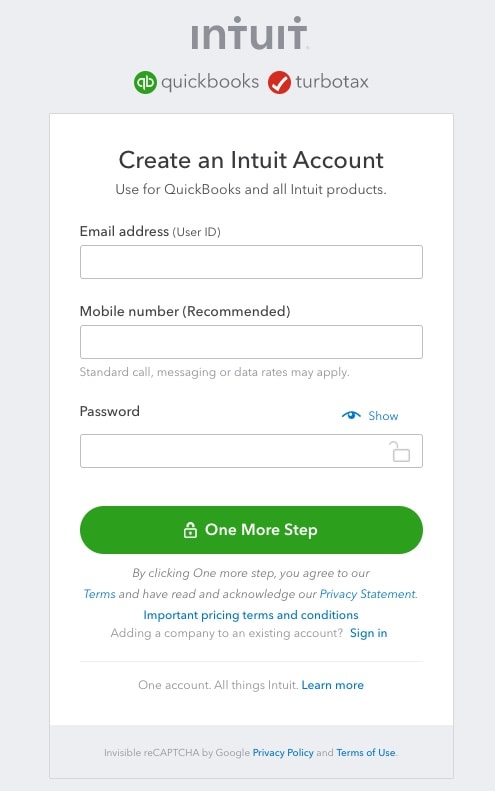Turn on suggestions
Auto-suggest helps you quickly narrow down your search results by suggesting possible matches as you type.
Showing results for
Hi,
I would be grateful for some help and clarity on Directors Loan setup in Quickbooks.
I am the owner and director of a company and I need to set up na Directors Loan Account for expenses I personally incurred that are business expenses. I may also give the company a loan in the future too.
May I ask what are the pros and cons of setting it up the Directors Loan Account as a
Current Liability account type
as opposed to setup as a
Bank Account
or as an
Equity Account?
Others in Quickbooks have suggested to set up a Directors Loan account as an equity account.
So the question is what is the difference between:
- Directors Current Account as a 'Bank Account'
- Directors Current Account as a 'Current Liabilities' account type
- Directors Loan Account as a 'Equity Account'
I also noticed a default account already set up called 'Directors Current Account' which is setup as a current liability account type. What is the difference between this and the Directors Loan Account? Is one a longer term liability and will the this Directors Current Account show as a loss as opposed to a loan?
Thank you.
I'm here to share insights on the different accounts stated above and how they affect your financial records, Intrepid_Learner.
I can see that you've posted a similar question here in the Community. My colleague already provided a solution, and you can view the complete details at this link: https://quickbooks.intuit.com/learn-support/en-uk/do-more-with-quickbooks/re-under-what-account-cate....
When you use the current liability type, it shows the amount owed to the director as a liability. This makes it easier to track what's due to be repaid and gives a clear picture of the company's financial obligations. Please know that it might affect the company's debt ratios and requires monitoring for any tax implications.
Using a bank account makes it super easy to track funds moving in and out, and you can transfer money without needing journal entries. However, it can sometimes get mixed up with actual bank accounts and can make financial reporting a bit tricky.
The equity account will reflect the director's investment in the company, which can be useful for equity tracking and shows a positive balance when the director has lent money to the company. It's important to note that this approach may complicate financial reporting and tax filings, as it combines equity with loans.
Thus, I recommend reaching out to an accountant for further assistance. They can provide guidance on the appropriate account to utilize for monitoring the director's loan. This will help ensure compliance with financial reporting standards and tax regulations.
Feel free to browse each link below for more in-depth information about tracking loans in the online program:
Furthermore, reconcile your bank or credit card accounts regularly to stay on top of your financial records.
Keep me posted if you need further guidance navigating around QBO or additional queries tracking transactions. We'll get back to lend a helping hand.
Thank you for your useful response.
Given what you have said, it would make sense to setup a bank account calls Directors Loan Bank Account and use it to settle Expenses incurred that the Director has paid for out of their personal account.
Then that Bank account could be settled from another Equity type account called the Directors Loan Equity Account as then it would mean (correctly) that the Director who is the owner of the company has settled the overdrawn Directors Loan Bank Account by investing money as Equity.
That would work?
Thank you.
Thank you for keeping us posted, Intrepid_Learner.
I'm really glad to hear that the info we shared is helpful for you and your business. This inspires us to keep striving to offer the best solutions and enhance the QuickBooks experience for all our customers.
If you need guidance on completing a specific task or troubleshoot any issues encountered while using QuickBooks, explore the Community page to access our online resources and self-help guides.
Keep me posted if you have other product concerns or need guidance completing a specific accounting task. We're always available to provide the help you need.
Could you please answer the above question in my last response.
Thank you.
Thanks for coming back to us, Intrepid. We appreciate your proactive approach to resolving this.
While your proposed method of using a "Director's Loan Bank Account" and a "Director's Loan Equity Account" is a common approach, the specific implementation can sometimes depend on the finer details of your accounting software and local regulations. We recommend connecting with our support team to ensure you're setting this up efficiently and compliantly.
They can walk you through the optimal setup within your specific accounting system and address potential tax or legal considerations related to director's loans and equity. This will help avoid any potential issues down the line.
To contact support, please visit https://intuit.me/CU. This will allow us to securely access your account information and obtain all the details we need to help you.
Here's the step-by-step process:
1. Click this link: https://intuit.me/CU.
2. Select the product you're using and the edition.
3. Enter a summary of your concern in the What's your question? field.
4. Click Continue.
5. Choose how you would like to connect with us.
Additionally, you can visit the Intuit Help Hub at https://intuit.me/OHH. It provides personalised support based on your QuickBooks needs.
This brief video guide will help you navigate the platform and address your questions or concerns: https://intuit.me/OHHvideo.
Let me know if you have other questions. I want to ensure everything is taken care of for you.

You have clicked a link to a site outside of the QuickBooks or ProFile Communities. By clicking "Continue", you will leave the community and be taken to that site instead.
